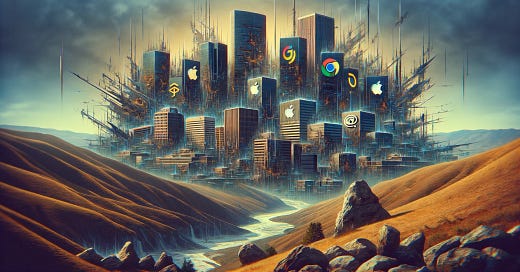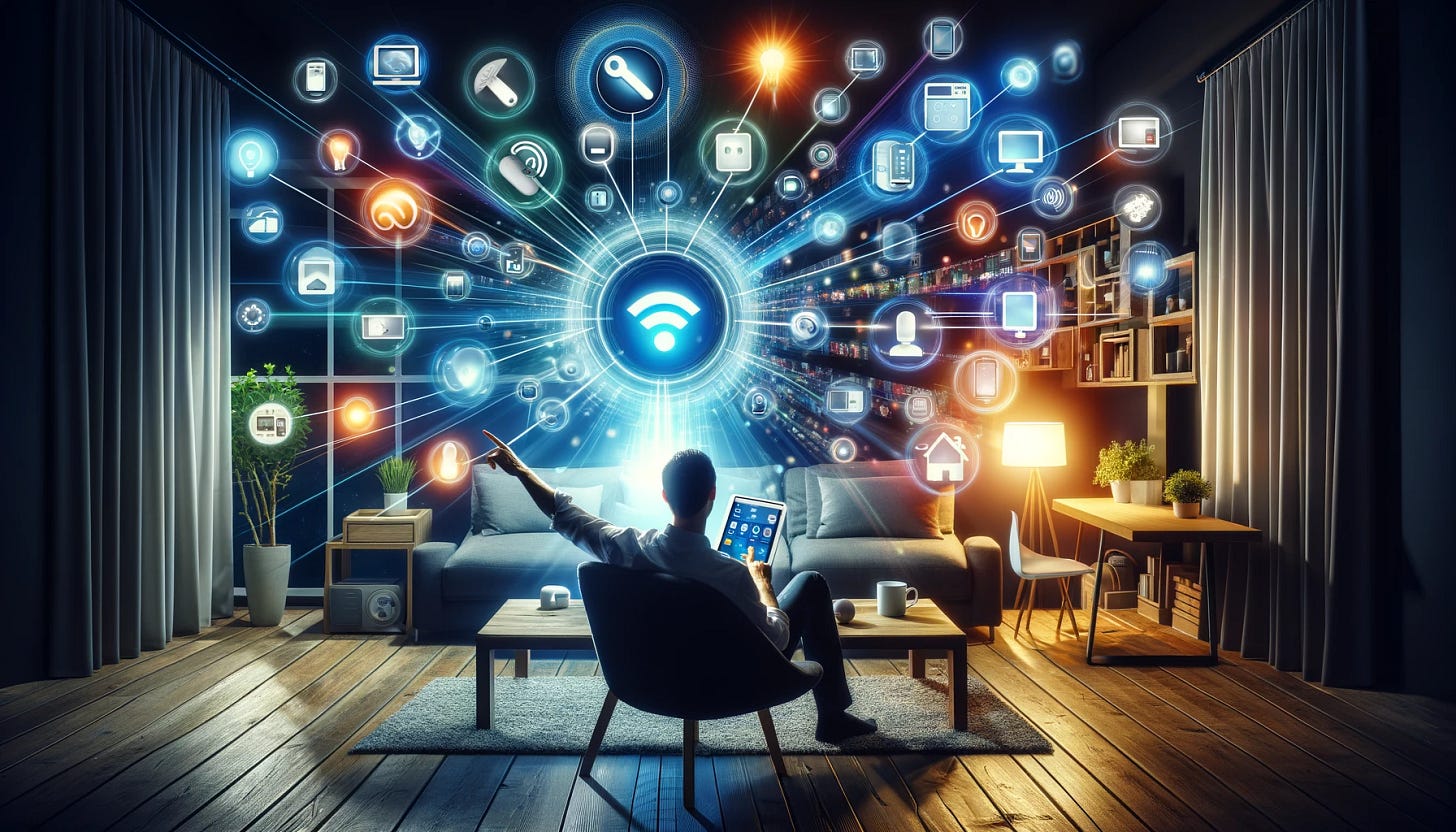Say Goodbye to Tech Giants
A Case for AI Hyper-personalization Killing Startups and Tech Giants as We Know Them
AI is developing in a spectrum of two extremes. On one end there are the tech giants eager to control the entire space, and on the other we have the free-for-all open source projects now sprouting. Aside from the fact that both approaches must inevitably fall under scrutiny of regulatory agents, one is more likely to prevail.
So, recently everyone has been talking about OpenAI Q-Star, the AI model allegedly to surpass human intelligence by reaching AGI, followed by the notion of our total submission while companies like OpenAI and Microsoft take our jobs. But will it?
I’m making a case for the completely opposite shift, that will ride the current wave of independent AI systems. It will have a totally different power dynamic, which will actually disrupt the tech giants and the entire startup ecosystem, empowering the user instead. It’s a bold statement, but one I can fortify.
Looking at the current AI landscape, we have the popular raw LLM models like GPT-4, Claude 2.1, Inflection 2 and competing open source models available. This race will eventually lead to commoditization of intelligent models which will become available for everyone. There’s no stopping that.
While big tech will do everything to control how we use them, what I truly believe is that the future won’t be about the centralized ChatGPTs and corporations controlling your AI. It will be about your own AI, your own AI ecosystem that YOU as the user control.
Concerns about giving the moguls too much control over AI are raised by tech execs and political forces alike. This fight is obviously not new and we have learned our lessons. The difference with AI, however, is that leaving too much of it in the hands of the few is like playing with fire. And we are only beginning to experience its true technological and social potential.
The risks are dire. What I believe is that instead of feeding on a big monolithic tech, everyone should and, eventually, will run their own AI agents which are not displaying ads and are not trying to addict you.
Market trends support this take. Personalization and data privacy are some of the key needs to be fulfilled by emerging software. On one hand, with independent AI tools, the user can explicitly - by using natural language - specify their preferences. This can be taken to the extreme level, where the entire ecosystem around the user will be customized only by them, and they will have their own ecosystems on top of that, governed by an agent that is customized by the users entirely.
On the other hand, eventually, as the user builds their AI system, that system will be able to do practically everything on behalf of the user, so it will need access to basically the user's entire life: all of your passwords, API keys, etc. This poses a great privacy threat. Do you want to entrust all that data to an unknown entity or to a solution that you can independently audit?
I see a world where technology is finally your servant and not anyone else's. A world is coming where it is your AI agent reading the news and social media for you, posting information for you, all while communicating with other people's AI agents.
It will have numerous social benefits, and you will be able to customize it so it filters out the attention-grabbing click baits and puts in front of you what you are truly interested in and what you should know. It can fact-check the stories and present to you the true version of the world, if you are interested in it.
My prediction is that AI will not create a world of fake imagery but - on the contrary - we will go back from the “post-truth” era to the actual-truth era, as AI augments our capability to process information.
But this has not been built yet.
In order for that vision to materialize, we need to build and control the gateway to this new reality. There will be multiple attempts at that. In fact, we aim to help build that open-source seed of this new reality at 10Clouds AI Labs at this very moment.
AIConsole is the first fruit of that mindset. It’s an open source desktop app that you control.
For now, it uses GPT-4 as its back-end model, but we will drift to other models as well as it uses a litellm library that abstracts differences in model APIs. AIConsole is a general tool that you can expand with your own knowledge and ability to do the tasks the way you want it in the context of your own device.
What can it do? It’s both a personal assistant and an editor that allows you to tailor its behavior to your needs. You can describe how to perform a task once, and AIConsole retains it forever.
Through this process, you can incrementally teach AIConsole to perform tasks unique to you — whether that's managing your social life (controlling your browser, accessing your files, and even reaching into APIs to your tools) or managing your professional content. With time, as it learns your life, it will become a powerful ally in your daily life.
It doesn't just stop at managing your calendar or texts — it can be customized to a multitude of domains. Whether you're writing a book, planning an RPG session, or managing data for your startup, AIConsole can help you along the way.
Furthermore, AIConsole does not rely on blindly uploading PDFs to vector databases. It allows you to control your inputs to AI on a much more precise level, on par with expert prompt engineering. AIConsole won’t munch the algorithms someone else has installed. It’s meant to do you.
By launching AIConsole, I want to join the democratic part of the AI development spectrum.
I warmly encourage you to give it a try and make this tool your personal AI assistant. You can get it here: aiconsole.ai.
Let’s embrace the era of AI hyper-personalization together. I would really appriciate your feedback, comments, thoughts. Reach out to me at twitter.com/mcielecki








I love the concept, like how we went from mainframe to personal computers ('PC'). Lately that privacy and freedom have been under attack by "subscriptions" and "cloud" stuff.
Sadly, young people today have no appreciation for the freedom of a PC or the dangers of relying on corporate-owned computers, or "the cloud". So I'm not optimistic.
I did however buy a decent PC with a large GPU for running local AI, at least for text and image creation, which I'm having tremendous fun with.
Took a look at your tool, it looks like a privacy nightmare and only for enterprise. I'm not an enterprise.